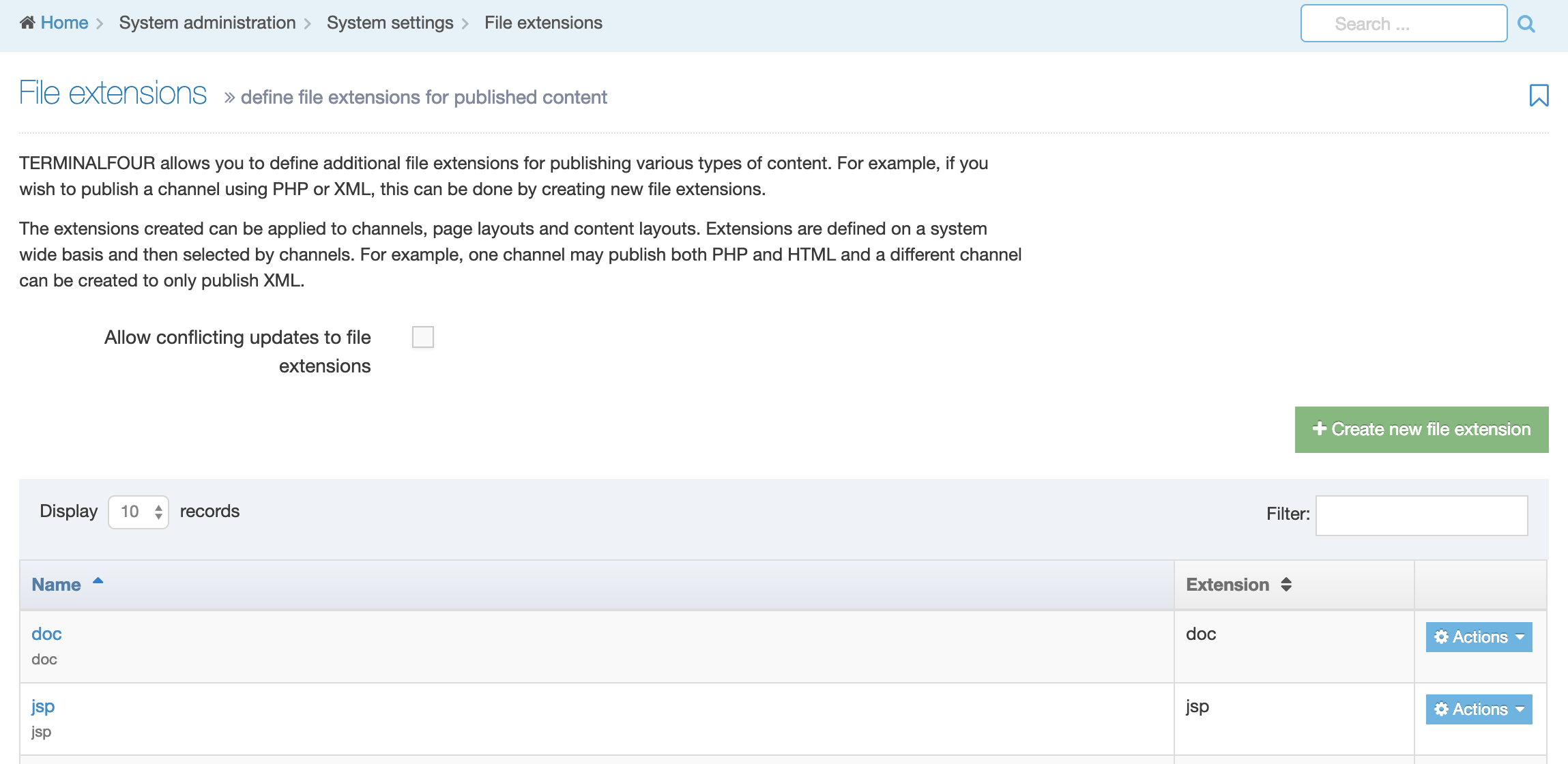File extensions
Description
Terminalfour allows you to define the file extension used when publishing content. The extensions created can be applied to Channels, Page Layouts and Content Layouts. Extensions are defined on a system-wide basis and then selected by Channels. For example, one Channel can publish both PHP and HTML pages while another Channel can be configured to only publish XML.
Terminalfour comes with several pre-loaded file extensions for use in the system. These file extensions are used by a Channel when publishing a site.
To configure the list of available file extensions, go to Administration > Settings > File Extensions
Examples of additional filename extensions would include:
- .php
- .xml
- .aspx
When you click File extensions, the existing configured file extensions are displayed.
Create new file extension
To add a new File extension, click Create new file extension and enter the details:
| Item | Description |
|---|---|
| Allow conflicting updates to file extensions |
It is recommended that you leave this unchecked. When checked you can use Channels, Page Layouts and Content Layouts with different file extensions. For example, if a Page Layout applied to a Section required a PHP extension, you can mirror content that requires a JSP extension into the Section and create a conflict. |
| Name | Sets the name of the file extension |
| Description | Sets the description of the file extension |
| Extension | Sets the suffix file extension without the dot (examples: csv, xml, php) |

